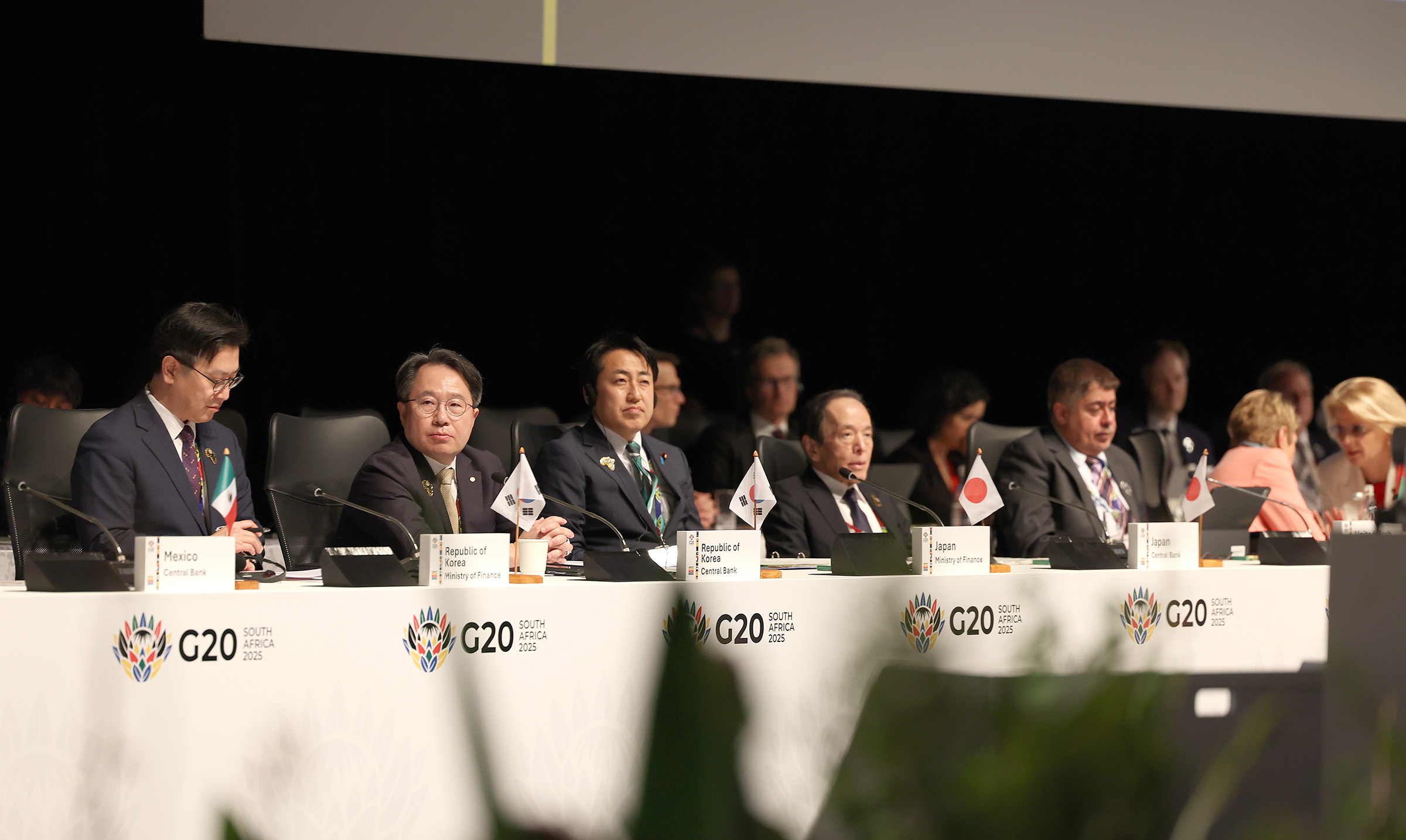Photo from South African President Cyril Ramaphosa’s first meeting of the G20 Finance Ministers and Central Governors in Cape Town on February 26, 2025. [Photo:GCIS]
Maryknoll Leaders Tell G20: Turn Debt Into Hope
More than 120 global faith leaders, including the leadership of the Maryknoll Sisters, Maryknoll Fathers and Brothers, and Maryknoll Lay Missioners, took the first step in the Jubilee 2025 Turn Debt into Hope campaign on Feb. 26 when they sent the following letter to the G20 finance ministers meeting in Cape Town, South Africa.
Dear G20 finance ministers,
In this Jubilee year 2025, a year of both material and spiritual liberation, Pope Francis has encouraged us all to be “Pilgrims of Hope” and in doing so address one of the most urgent issues which face us, that of the acute global debt crisis.
As faith leaders, we are deeply troubled at the impact this current debt crisis is having on the lives of the poorest and most vulnerable across the world. Today, the need for action is even greater than the last Jubilee in 2000, when the first campaign for debt relief was launched: 3.3 billion people – nearly half the global population – now live in countries that spend more on debt payments than on health, education, or life-saving climate measures.
We believe the G20 Common Framework is failing to produce the timely and adequate deals upon which millions of lives and livelihoods depend. Debt restructurings under the framework take three times longer than previous processes, while private creditors – now the largest creditor group globally – are able to delay negotiations and demand higher repayments than debtor countries can afford. This inefficiency and inequity has deterred nations in urgent need of relief from engaging with the framework, leaving their citizens to endure hunger, lack of access to essential services, crumbling infrastructure and the worst impacts of the climate crisis.
We must have a fair and functional global debt system. The Jubilee tradition calls for debts to be forgiven, land restored, and slaves freed. This Biblical practice embodied justice, mercy, and reconciliation, offering a renewed covenant with God and harmony within the community. With these principles in mind, we call on you to:
Champion a debt cancellation framework that brings debt payments down to a genuinely affordable level, suspends debt payments while debt cancellation is being negotiated, offers debtors assurances of sufficient debt cancellation before they apply, and compels all lenders to participate.
Pass legislation in key jurisdictions to ensure private lenders participate in debt cancellation and suspend payments to private lenders during negotiations.
Reform International Financial Institutions, ensuring that debtor countries are properly represented and that debt sustainability assessments and policy conditions center human and environmental rights.
Support the creation of a UN Debt Convention to agree rules on resolving/settling debt crises, responsible lending and borrowing and the establishment of a public global debt registry so that all lenders and borrowing governments are held accountable.
Taking these steps will not only address the immediate debt crisis but also lay the foundation for a more just and resilient global financial system. As faith leaders, we urge you to be Pilgrims of Hope acting with courage, solidarity and compassion in this Jubilee year.
Faith in action
Sign the Turn Debt into Hope petition to world leaders asking for actions to stop the debt crisis. Download the campaign pack on the petition website for more prayer, study and actions. https://turndebtintohope.caritas.org/

